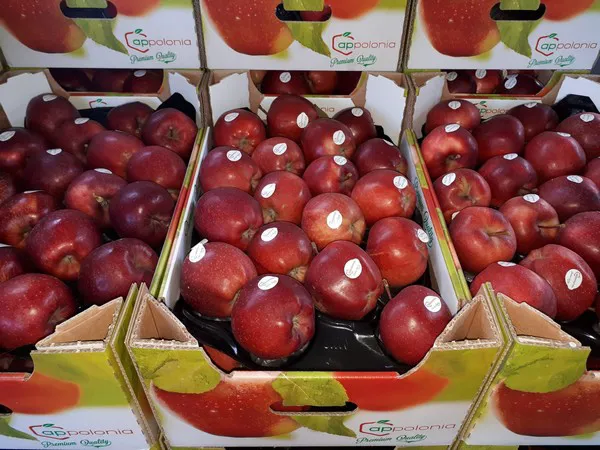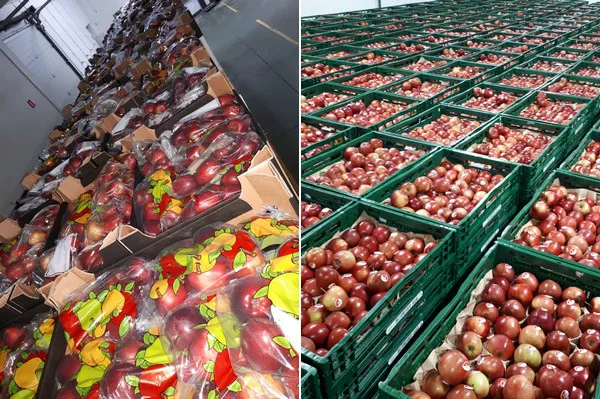The end of the apple season in Poland comes with challenging circumstances, says Jakub Krawczyk, export manager for Polish apple exporter Appolonia: “The end of the Polish apple season could be very interesting this year. At the moment, there are a couple of things that are crucial when it comes to sales. For one, the availability of some varieties is very low. Second, the prices have increased a lot and will probably go even higher. Finally, the quality of many varieties is just bad at this point and we need to avoid batches that we can’t sell. However, despite all of these challenges, the sales have been going very well. At the moment we are full with orders for many days ahead. We heard that in many regions of Poland, apples are finished, and so now the Grójec area has the biggest availability, which is the region where we are located. It’s the biggest apple orchard area in Poland and in Europe.”

The Royal Gala has been the most successful variety for Appolonia, Krawczyk explains. “We have still good stocks of apples, especially Red Jonaprince, but we see that customers choose that variety more often now, so we should be able to sell all of our volumes. The best variety in terms of popularity at our company this season is Royal Gala. Especially striped variants like Schniga, with colour above 70%+, was very popular. However, Gala Schnico Red, which doesn’t have stripes and has colour 90%+ is also starting to make some space on the shelfs, which is also a very good option for us. Because most of customers know that variety, when you know how to handle it you will have big pressure.”
For the future, Krawczyk would love to get more business in the Latin American market, as they’ve made some shipments to the continent this year: “All of the calibres of Royal Galas have sold well, from 55 till 90, the price was stable and the availability from October till end February was very good. So, we accomplished many programs with our customers. There were like always lot of customers from Asia that were buying it, like India or Vietnam, we sold it a lot of to Europe, but many countries from Latin America also decided to buy it from us these season, so we want to keep up that trend and we are looking for more customers in that part of the world.”

As costs are increasing, more growers in Poland are looking at way to grow the apples in a cheap manner. However, the results from cutting these corners means the apples from these growers will not be suitable for export, Krawczyk states. “When looking at the upcoming season, many growers are choosing cheaper cultivation options, just because they can’t afford to do it any other way. Unfortunately, if a company like us wants to send apples for 40-50 days in a container, all cultivation methods need to be done the proper way. There are no shortcuts when you are looking for good quality.”
“Prices have went up for many varieties and we predict that there will be still more increases. Many growers are waiting for the right price, many want to open their cold chambers in May or June, so there are still apples in ULO. The growers that still have good quality apples can probably sell it for quite a good price. We needed to stop selling some varieties for some time to some countries, just because we couldn’t make the price work. We either need to wait until some of the customers will accept the new higher price or we’ll need to sell it on other markets. A rapid increase of the price is not something that customers accept immediately, because there is a big chain of the reaction and on each level it needs to be accepted. And if the new price is not accepted, sales will come to a halt,” Krawczyk concludes.
For more information:
Jakub Krawczyk
Appolonia
Tel: +48 785 342 930
Email: [email protected]
www.appolonia.pl
